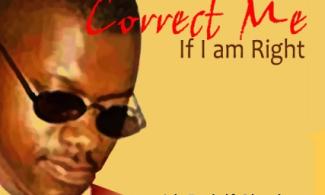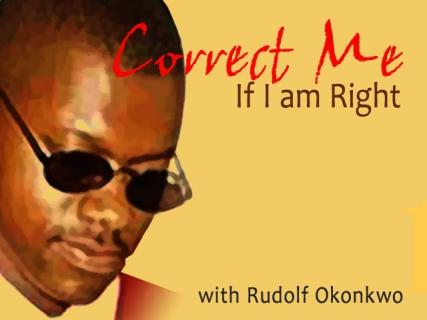
No matter how fractured a people are as they head to the polls, after the elections, democracy expects that they will pull back and reconcile themselves to their common history, heritage and home. If the election is a free and fair one, that process is easy. If it is not, that process of reconciliation becomes difficult. In some cases, it could threaten the same democracy it intended to enthrone.

Democracy, if you strip it of all encumbrances, is a funny proposition. It says that the process of structuring a society requires that those who seek to lead must first get the consent of the people. It is the consent of the people that bestows legitimacy upon a leader.
Unfortunately, the people in any society are not homogenous. To get their consent, those interested in leading must appeal to the people’s intellect, emotions and, in some cases, their pockets. It entails dividing them and meeting them “at their points of needs.” That’s where democracy becomes anything but science. It is at that juncture that democracy often trips.
The very process of the people expressing who should have their mandate often requires that they cast votes. That rather simple exercise becomes complicated in light of the pressure exerted on the process by the desires of those aspiring to lead.
An informed citizenry is needed for democracy to overcome the tendency of the practitioners to rig it in their favor. But hardly do we have a majority of the citizenry of any democracy that could be described as informed. Faced with a daily bombardment of twisted information and propaganda masquerading as prophesies, the citizenry is left holding the short end of the stick.
Despite these imperfections, in societies where democracies have established a way to retire a government that has failed to satisfy the needs of the majority, democracy has managed to thrive. In society where that process has been handicapped, chaos has enveloped the political process increasing the premium at the peripheries of the society.
Any other day, in sheer struggle to survive, most people forget who they are in relation to others who share a space, a country with them. But when politics comes, they remember. On remembering, they hustle in search of their destiny within the space. They translate and interpret the messages of those aspiring to lead within the context of their worldview. Often the passion is so high that in a dry landscape, the risk of igniting fire is elevated.
Looking at democracy in the theoretical sense, that should not be the case. But in the practical sense, such a descent is easy and often irreversible. In every speech a politician makes, especially those aimed at distinguishing one politician from the other, he or she draws lines and circles. By the time the campaigning is done, the people are fractured.
No matter how fractured a people are as they head to the polls, after the elections, democracy expects that they will pull back and reconcile themselves to their common history, heritage and home. If the election is a free and fair one, that process is easy. If it is not, that process of reconciliation becomes difficult. In some cases, it could threaten the same democracy it intended to enthrone.
Looking at the peculiar case of Nigeria’s presidential election 2015, this election is Jonathan’s to lose. No sitting Nigerian president has lost a reelection bid. One lost a 3rd term bid, but not a re-election. That possibility is staring Jonathan in the face. And he is not taking it sitting down. He’s doing everything to make sure it would not happen. The people around him are not leaving any stone unturned.
Why this is an unchartered territory for Nigeria is that since independence one party has ruled Nigeria under different disguises. So, what is at stake is a lot higher. The president, any president, would have preferred not to run for re-election if that would guarantee that his party would retain the presidency rather than hand the presidency over to an opposition party. The fear of an opposition party coming in to ransack the shrines of a party that has been in power for so long is a mortal one.
That is why the tension across the Nigerian political scene is crushing. It is easy for a president and his government to go home if they are handing over to one of their own. Handing over to another government, especially one that will potentially be headed by Muhammadu Buhari is a different ball game.
Unknown to casual observers, in the last six months, Buhari has been getting educated. He has been enrolled in school. The practice of democracy educates the governors and the governed alike. The intricate process of forging an opposition party that is capable of threatening the projected 60-year uninterrupted rule of PDP is a lesson like no other. The opposition party had no option but to dilute its progressive purity with questionable characters all in an effort to forge a critical mass needed to upend the embedded ruling party.
Since winning the nomination of his party, Buhari has been compelled by the demands of democracy to transform himself, his views and his outlook. Democracy has a way of showing you the people in all their majesty. A leader who intends to get their votes is often required to step down from his high horse and come to the people’s level and learn.
The Buhari that is running for president today is a far cry from the Buhari that governed Nigeria for 18 months in the 80s. Democracy has schooled him. And it has schooled us, too. In a free and fair election, whether Jonathan wins or Buhari wins, depends on how much lessons of democracy the candidates absorbed, and we, the students, embraced.
The one lesson that is already delivered, though underreported, is that while we were sleeping, the expectations of Nigerians increased astronomically. This is due to the greater connectivity of the world. Nigerians easily assess how governments of other countries handle the affairs of their states and they do comparative analysis in real time.
Happening in the last four years, President Jonathan has been at the receiving end of the wrath of the youths who sense inadequacies on his part. The vitriol thrown at him is not just because many hated him. Instead, it is because many have the opportunity to let out their vitriol through social media that is readily available. If former President Olusegun Obasanjo in his days in office had the social media that Jonathan currently has, Obasanjo would have been roasted beyond recognition.
The person to really feel sorry for is the man or woman who will govern that country of 100 million restless youths in the next four years.